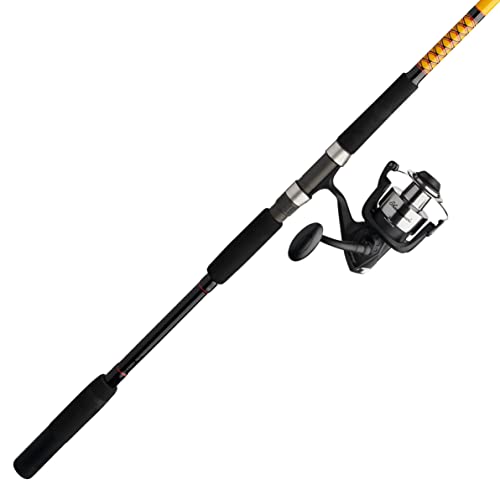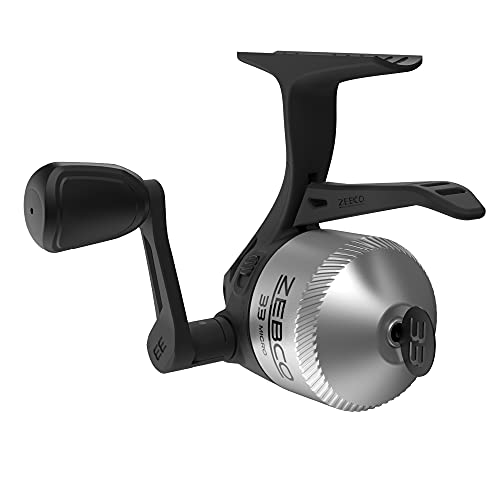A fishing boat typically weighs around 1,500 to 6,000 pounds. Now, i will provide an in-depth introduction to give readers a comprehensive understanding of fishing boat weights.
Fishing boats come in various sizes and types, each with its own weight specifications. Factors such as construction materials, equipment, and accessories can also affect a boat’s weight. Smaller fishing boats like jon boats or dinghies generally weigh around 1,500 to 2,500 pounds, while larger offshore fishing boats can range from 4,000 to 6,000 pounds or more.
Understanding the weight of a fishing boat is crucial for proper transportation, usage, and storage. Consequently, it is essential for boat owners and enthusiasts to be aware of the weight range associated with different types of fishing boats.

Credit: www.npr.org
Factors Affecting The Weight Of A Fishing Boat
When it comes to purchasing a fishing boat, one important consideration is its weight. The weight of a fishing boat is determined by several factors, including the construction materials used, the boat’s size and design, as well as the additional equipment and accessories that it carries.
Understanding these factors will help you make an informed decision when selecting the right fishing boat for your needs.
Construction Materials
The choice of construction materials plays a significant role in determining the weight of a fishing boat. Here are some key points to consider:
- Fiberglass: Fiberglass is a common material used in boat construction. It is lightweight, durable, and offers better fuel efficiency compared to other materials.
- Aluminum: Aluminum boats are also popular among fishing enthusiasts. They are lightweight and resistant to corrosion, making them suitable for both freshwater and saltwater fishing.
- Wood: Wood was traditionally used in boat construction, but it is heavier and requires more maintenance compared to other materials.
Boat Size And Design
The size and design of a fishing boat have a direct impact on its weight. Consider the following factors:
- Length and width: Generally, larger boats tend to be heavier as they require more materials for construction. The width or beam of the boat also affects its weight.
- Hull design: The design of the boat’s hull can influence its weight. Planing hulls are generally lighter and faster, while displacement hulls are heavier and offer better stability.
Additional Equipment And Accessories
The weight of a fishing boat can increase significantly with the addition of equipment and accessories. Here are some points to keep in mind:
- Engine and fuel capacity: The size and type of engine, as well as the fuel capacity, add to the overall weight of the boat. Consider your power needs and fuel range requirements.
- Fishing gear: The gears you plan to carry, such as fishing rods, reels, tackle boxes, and bait, should be accounted for in the boat’s weight calculation.
- Safety equipment: Life jackets, fire extinguishers, and other safety equipment are essential but contribute to the overall weight. Ensure you have the required safety gear on board.
The weight of a fishing boat is influenced by multiple factors, including the construction materials, boat size and design, and the additional equipment and accessories you choose. Understanding these factors will help you determine the right balance between the boat’s weight, performance, and functionality.
Weight Comparisons: Different Types Of Fishing Boats
**weight comparisons: different types of fishing boats**
When it comes to fishing boats, you might be wondering how much they weigh. The weight of a fishing boat can vary depending on the type and construction materials used. In this section, we will discuss the weight comparisons of different types of fishing boats, including aluminum fishing boats, fiberglass fishing boats, and inflatable fishing boats.
Aluminum Fishing Boats
Aluminum fishing boats are known for their durability and lightweight construction. Here are some key points about the weight of aluminum fishing boats:
- Aluminum fishing boats typically weigh between 400 to 2,500 pounds, depending on their size and design.
- Smaller aluminum fishing boats, such as jon boats or utility boats, usually weigh around 400 to 900 pounds.
- Mid-sized aluminum fishing boats, like bass boats, can weigh between 1,200 to 1,800 pounds.
- Larger aluminum fishing boats, including walleye boats or multi-species boats, may weigh anywhere from 1,500 to 2,500 pounds.
Fiberglass Fishing Boats
Fiberglass fishing boats are popular for their sleek design and smooth ride. Here’s what you need to know about the weight of fiberglass fishing boats:
- Fiberglass fishing boats typically weigh between 1,500 to 5,000 pounds, depending on their size and features.
- Smaller fiberglass fishing boats, such as flats boats or skiffs, usually weigh around 1,500 to 2,500 pounds.
- Mid-sized fiberglass fishing boats, like center console boats or bay boats, can weigh between 2,500 to 4,000 pounds.
- Larger fiberglass fishing boats, including offshore boats or sportfishing boats, may weigh anywhere from 4,000 to 5,000 pounds.
Inflatable Fishing Boats
Inflatable fishing boats offer portability and ease of storage. Here are some key points about the weight of inflatable fishing boats:
- Inflatable fishing boats are the lightest type of fishing boats and typically weigh between 50 to 300 pounds.
- Smaller inflatable fishing boats, such as kayaks or dinghies, usually weigh around 50 to 150 pounds.
- Mid-sized inflatable fishing boats, like inflatable pontoon boats or inflatable kayaks, can weigh between 150 to 200 pounds.
- Larger inflatable fishing boats, including inflatable sport boats or rigid inflatable boats (ribs), may weigh anywhere from 200 to 300 pounds.
Overall, the weight of a fishing boat depends on various factors like size, construction materials, and additional features. Whether you prefer the lightweight aluminum boats, sleek fiberglass boats, or portable inflatable boats, make sure to consider the weight as one of the factors when choosing the right fishing boat for your needs.
Understanding Weight Distribution And Its Importance For Fishing Boats
Weight Distribution Basics
- Weight distribution refers to how the weight is distributed throughout a fishing boat. It plays a crucial role in the performance and stability of the vessel.
- Proper weight distribution ensures that the boat is balanced and handles well on the water.
- A well-balanced boat is more maneuverable, stable, and less likely to tip over or capsize.
- Understanding weight distribution is essential for maximizing the boat’s fishing capabilities and ensuring a safe and comfortable experience on the water.
Impact Of Improper Weight Distribution On Performance
- Improper weight distribution can have a significant impact on the performance of a fishing boat. Here are some key consequences of poor weight distribution:
- Reduced stability: When weight is unevenly distributed, the boat becomes unstable, increasing the risk of accidents and decreasing the overall safety of the vessel.
- Poor handling: Uneven weight on a boat can make it difficult to navigate, especially in rough waters. It can lead to sluggish steering, decreased maneuverability, and even loss of control.
- Increased fuel consumption: Improper weight distribution can affect the boat’s hydrodynamics, causing it to plow through the water instead of gliding. This results in increased drag and fuel consumption.
- Excessive hull stress: Uneven weight distribution can put excessive stress on the hull, potentially leading to structural damage over time. This can be costly to repair and compromise the boat’s integrity.
Tips For Properly Distributing Weight On A Fishing Boat
- Proper weight distribution is vital for optimizing the performance of a fishing boat. Here are some useful tips to ensure your boat is properly balanced:
- Store heavy items low and centrally: Place heavy equipment, such as batteries, fuel tanks, and tackle boxes, in the center of the boat and close to the hull’s bottom. This keeps the boat’s center of gravity low and helps maintain stability.
- Distribute weight evenly from side to side: Avoid loading one side of the boat more than the other. Uneven weight distribution from side to side can lead to listing, making it difficult to control the boat.
- Secure equipment and cargo: Make sure all equipment and cargo are securely fastened to prevent shifting while underway. Loose items can significantly affect weight distribution and stability.
- Consider passengers’ positions: If you have passengers on board, distribute their weight evenly throughout the boat. This can be especially important if you have multiple people fishing from one side of the boat.
- Be mindful of weight limits: Pay attention to the weight limits specified for your fishing boat. Exceeding these limits can compromise the boat’s performance and safety.
Remember, proper weight distribution is essential for optimal performance, stability, and safety on the water. By following these tips, you can enhance your fishing experience and ensure a smooth ride on your fishing boat. Now that you understand the basics of weight distribution, let’s explore other factors to consider when it comes to fishing boats.
Conclusion
So, now you know the answer to the question “how much does a fishing boat weigh? ” We have covered the different factors that can influence a boat’s weight, including the materials used in construction and the size of the boat.
Remember that the weight of a fishing boat is crucial for safety and performance. Whether you are a professional angler or a weekend enthusiast, understanding the weight of your boat can help you make informed decisions when it comes to transportation and storage.
Additionally, keeping your boat at a suitable weight ensures you can enjoy a smooth and stable ride on the water. So, before you purchase or use a fishing boat, make sure you take into consideration the weight and its impact on your overall fishing experience.
Happy fishing!



